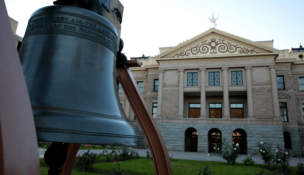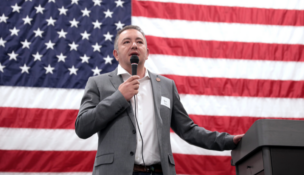School for the Deaf and Blind can continue, may face extra scrutiny
Camryn Sanchez Arizona Capitol Times//March 29, 2023//[read_meter]
School for the Deaf and Blind can continue, may face extra scrutiny
Camryn Sanchez Arizona Capitol Times//March 29, 2023//[read_meter]
(From left): Sen. Justine Wadsack, R-Tucson; Senate Education Committee chair Sen. Ken Bennett, R-Prescott; and Sen. Christine Marsh, D-Phoenix, discuss continuation for Arizona State School for...

















